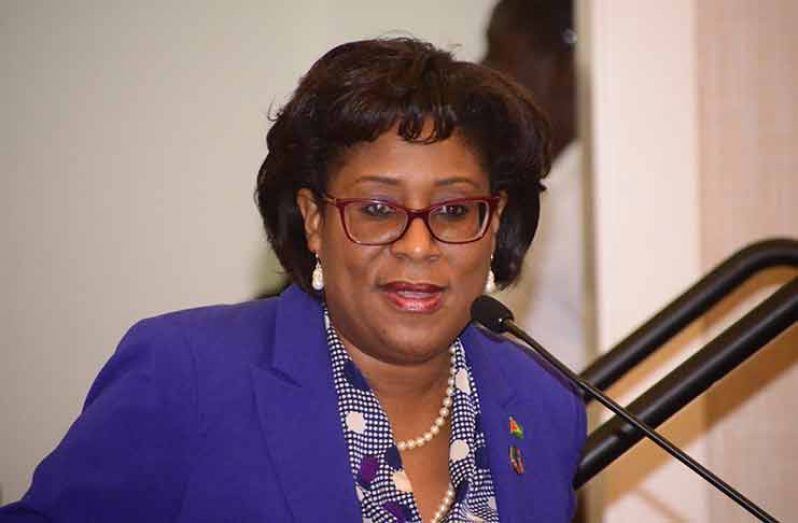… if only Guyana can keep up with changing technology
WHILE the buzzword in Guyana these days seems to be oil-and-gas, for Minister of Public Telecommunications, Catherine Hughes, the accent is more on keeping abreast with technology.

Speaking Friday at the opening of an IDB-led digital transformation workshop, aptly themed “How technology and innovation are improving people’s lives”, Minister Hughes said the sooner both the government and the private sector realise that digital transformation is the only sure way to rapid development, the better off they will be.
“Technology can change all of this. In Guyana, we are moving towards the 21st Century where more services can be provided online,” she said.
“This country will not transform on the strength of incremental growth and that is why our discussions on exponential technologies are so important,” she told invitees to the workshop, among them stakeholders and civil society leaders.
But to make that change, and do so effectively, she said, Guyana must first find or choose a path in which the country can be Number One.
“Imagine such an area can be robotics in agriculture, and everybody that is interested in agriculture and the development of robots for agriculture could be coming to Guyana. And that is a whole industry that we can develop.”
Having thus tickled their collective imagination, Minister Hughes urged workshop participants to forget the country’s acknowledged limitations during their discussions and deliberations, and rather envision how businesses and agencies can work together on removing those shackles to competitiveness.

Noting that it is essential to move forward and come up with practical solutions to the many challenges society faces, Minister Hughes said:
“We have made a commitment to provide the environment, as we are liberalising our telecommunications landscape so that more private sector companies can get into the environment and business of providing services … not only on the coast but most importantly in our hinterland, rural and poor communities.”
She, however, cautioned that should the infrastructure be created and not used, then the hoped-for transformation will not take place.
IDB Country Representative Sophie Makonnen couldn’t agree more with what the minister said, conceding that the world of technology is indeed rapidly evolving.
Conceding also that new ways of tackling various problems are also unfolding, Makonnen said that in order to face the new challenges that technologies bring, one needs to acquire the right skillset.
And that’s where the workshop comes in, she said, as one of the things it proposes to do is to make the link between innovative technologies, the digital transformation and the challenges countries are facing.
She said that for the IDB to work effectively with member countries in fulfilling its mandate, it is critical to take full advantage of technology.
But the challenge, however, would be how agile countries are to use the various technologies to leapfrog their development trajectories.
She said that in keeping with the IDB’s regional policies, the main goal of the workshop is to promote the exchange and experiences amongst participants in order to also endorse economic growth in the region.
In challenging civil society representatives to adapt quickly, Makonnen told the gathering that modern technology is no longer a luxury, but one of the main components of successful and accelerated development.
“Access to the Internet and use of new innovative designs are critical to solving developmental challenges,” she said, adding: “Our goal is to continue to improve lives.”




.jpg)










